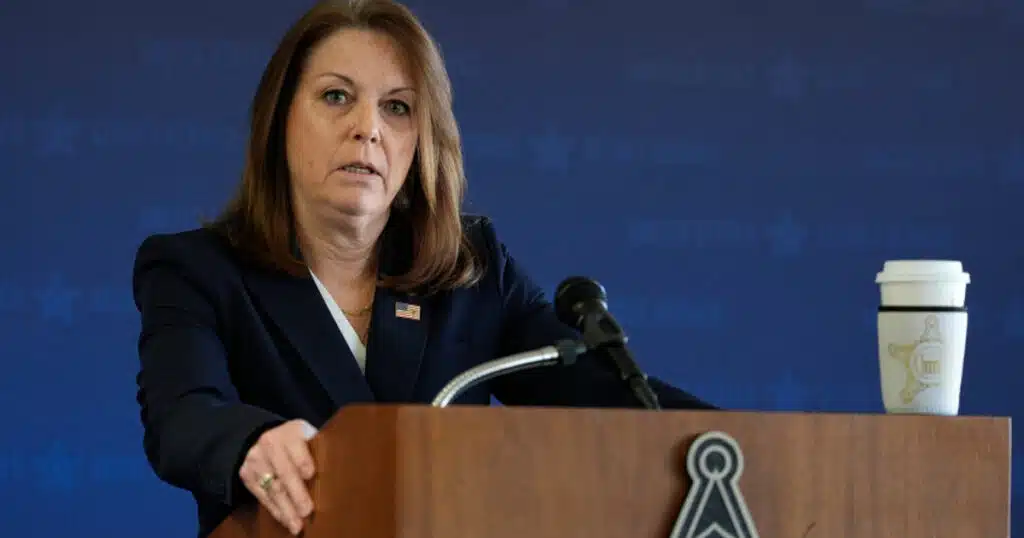
FOIAs seek info on potential Secret Service ties to House bill to strip Trump of security detail
How involved were Secret Service staff with a Democratic congressman’s office to strip former President Donald Trump of his Secret Service detail, if at all? A U.S. Army veteran judge advocate and director of a nonprofit organization wants to know.
James Fitzpatrick, director of the Center to Advance Security in America, filed Freedom of Information requests with the U.S. Department of Homeland Security inquiring about Department of Homeland Security Legislative Affairs’ and Secret Service’s staff potential involvement with House Democrats, who filed a bill to strip Trump of his USSS detail in the event that he were sentenced to prison.
Nine House Democrats cosponsored a bill in April, led by U.S. Rep. Bennie Thompson, D-Miss., who chaired the bipartisan select committee to investigate the Jan. 6 attacks. After the shooting, one of Thompson’s staffers, who has since been fired, reportedly said in a Facebook post the shooter needed shooting lessons so he wouldn’t “miss the next time.”
While the bill went nowhere in the Republican-controlled House, Fitzpatrick has questions about how the writing of the bill came about, including how involved USSS staff were in crafting it – if at all– just months before the agency’s “apocalyptic security failure” in protecting Trump from the assassination attempt, as critics have called it. The former president survived, Trump and others argue, because he turned his head at the exact time the bullet would have hit it, missing his brain by an estimated millimeters and grazing his right ear instead.
The Center Square asked Thompson’s office if he or his staff sought the input of Secret Service staff to craft the bill. It also asked if he still holds the position that if Trump were sentenced to prison in the future, that he and his family should be stripped of USSS security detail. His office has yet to respond.
Eight other House Democrats cosponsored his bill: Troy Carter of Louisiana, Barbara Lee of California, Frederica Wilson of Florida, Yvette Clarke of New York, Bonnie Watson Coleman of New Jersey, Jasmine Crockett of Texas, Joyce Beatty of Ohio, and Steve Cohen of Tennessee.
After the assassination attempt, Thompson said his bill would not have impacted Trump’s USSS security detail at the rally. He told a local Mississippi news outlet, “My bill would not have affected the Secret Service’s presence during this tragic event. It aims to clarify lines of authority when a protectee is sentenced to prison and is in the custody of another law enforcement agency,” the congressman said. “That does not apply to the former President.”
Fitzpatrick disagrees, saying, if Thompson’s bill had passed, “former President Trump would not have had any USSS protection at his rally in Butler, Pennsylvania, and the results could have been even more catastrophic.” He agreed that Thompson’s reasoning was true, “but that is likely only to the rescheduling of the sentencing.”
The original sentencing for Trump’s 34-felony count verdict in a New York case was scheduled for July 11. “He very well could have received jail time at that sentencing,” Fitzpatrick said. Trump’s attempted assassination occurred two days later on July 13.
Fitzpatrick sent two FOIAs, one to DHS and USSS, which is part of DHS, and another to DHS’s Office of Legislative Affairs.
The first FOIA requests records, calendar entries, communications and other information related to a specific staffer “or any U.S. Secret Service Office of Intergovernmental and Legislative Affairs employee” and Thompson’s bill.
The second request asks for similar information but lists other staffers’ names.
“We are hoping to find conversations regarding Thompson’s proposed legislation to strip Secret Service protection from anyone, including President Trump, of their protection upon sentencing for the conviction of a felony,” Fitzpatrick told The Center Square. There could be several results, he said, including, “Thompson did not consult with DHS or Secret Service prior to writing this bill, which is problematic,” because congressional staff generally consult with the agencies the legislation impacts when they craft bills.
Fitzpatrick was a former staffer for former U.S. Sen. Pat Toomey, R-Penn.
Another result could be that “DHS or Secret Service discussed this bill with Thompson’s office and potentially expressed reservations because they potentially had security concerns,” he said.
Another is that “DHS or Secret Service discussed this bill with Thompson’s office and potentially discussed support for the bill or provided advice on how to craft it.”
Regardless of the response, “the underlying policy is concerning and the American people have a right to know,” Fitzpatrick said.
CASA is dedicated “to improving the safety and security of the American people” and educating them “about the actions of their government,” according to its website. Its staff aim to “discover the truth, using whistleblowers, research, information requests, and legal action,” it says, believing that raising awareness helps Americans “to become better-informed about what their government is doing to protect their safety and security in a dangerous world.”
Calls for the USSS director’s resignation continue to mount and congressional investigations have begun with a House Oversight Committee hearing scheduled for next week.



